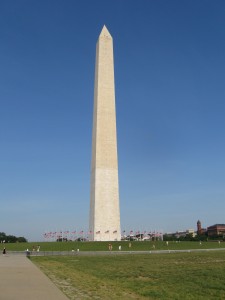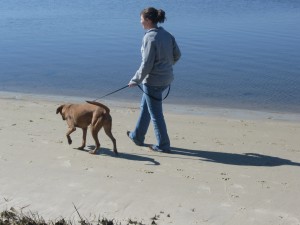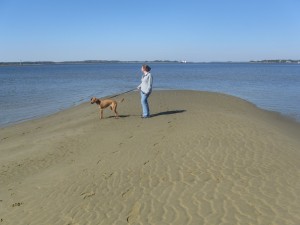
Tony and I will be back from our frugal mini-vacation in Washington DC on Sunday. In the meantime, here we are in front of the Lincoln Monument on our honeymoon in May. Aren’t we nerdy? :)
Have a wonderful weekend!

Tony and I will be back from our frugal mini-vacation in Washington DC on Sunday. In the meantime, here we are in front of the Lincoln Monument on our honeymoon in May. Aren’t we nerdy? :)
Have a wonderful weekend!

Sometimes you just need to take a step back and take a break. That’s where we are right now. Though we’ve taken several trips to visit family (including Seattle in October and Indiana in December), Tony and I haven’t gotten away together, just the two of us, since our honeymoon 9 months ago.
In November, I found a great deal on a hotel room in Washington DC at HotelClub (about $60 a night for a room in a fantastic location). I knew that after spending almost two weeks on the road and visiting family then heading right back into our routine, we’d probably need some time away around this time. A frugal mini-vacation is the perfect solution.
Here are some tips for saving money if you want to plan a family-friendly mini-vacation of your own:
Choosing a destination close enough to drive reduces the cost of your trip significantly. It’s much cheaper to drive than fly (especially if you’re traveling with a family). Closer destinations also mean lower gas costs and the ability to stay for just a night or two instead of a whole week, which means more affordable lodging.
Historical cities are the most frugal places to visit. National and state historic sites and museums rarely charge for admission, and when they’re state or federally funded they’re usually better than independent tourist attractions.
We’re lucky to live within driving distance of Washington DC. It’s one of my favorite frugal vacation destinations. With tons of free museums and historical sites, there’s a lot to do that costs very little or nothing at all.
These destinations exist in every state, though. When I was a kid, my family lived in Michigan. We held a season pass to Greenfield Village and Henry Ford Museum in Dearborn, Michigan. Those weekend trips remain some of my favorite vacation memories (even more than a huge trip to Disney that probably cost my parents a couple thousand dollars).
When Tony and I lived in the Midwest, we took a similar trip to Springfield, Illinois. We visited a ton of Lincoln sites, toured the state Capitol, and had a fantastic time for cheap. Be creative. Whether it’s a state capital or historical city near you, these cities are fun, frugal, and educational for kids.
Historic cities and state capitals offer a lot of free and cheap attractions, but the trade-off is often high prices for hotels during the busy tourist season (especially summers and vacations when kids are out of school). Part of the reason we got such a great deal on our DC hotel room is because we planned the trip for February. Just two weeks later, the price would have been $25 more per night. If we had planned our trip for April, we would have paid $50 more per night. If you plan a weekend trip between January and mid-March, you’ll find the best deals on lodging. An added bonus is that museums are a lot more enjoyable when they’re not overcrowded.
Museum cafeterias often overcharge for food that isn’t that great. They usually don’t mind if you bring your own food, though. Save some money by packing some sandwiches and drinks. If the museum doesn’t allow it, then plan for a mid-afternoon break to head back to the hotel for lunch. Even if you end up at a restaurant off site, you’ll probably spend less for better food than you would get at the museum.
I was a nerdy kid. I loved museums and learning. I still do. Two of my sisters didn’t share my enthusiasm for field-trip-like vacations. Even the most educational museums usually cater to children of all personality types with hands-on activities that keep everyone happy. If your kids aren’t into musems, blend educational activities with other frugal things they’ll enjoy (maybe a baseball game or an afternoon playing outside at a park).
Tony and I need to do a little spring cleaning. That’s an understatement, actually. We have several boxes of books, DVDs, and other items that we don’t want anymore. That in addition to the stuff still on our shelves that will soon be added to our “sell” pile.
Most of this stuff isn’t worth any money, so we’ll probably donate it. But we have a few items that are rare or worth a bit of money that we just don’t want anymore. We’d like to sell them and increase our savings, so I’d like to know: which selling method works best for you?
Are online selling sites like eBay and Amazon more trouble than they’re worth? Since I’ve never sold anything on those sites before will I have to list my item for much cheaper than other sellers? Have you had better luck on Craigslist? Do you recommend any other sites that I’m not even aware of?
Let me know what works for you so I can get rid of this stuff, increase our space, and increase our savings!

photo by poolie
As I continue to research for our frugal European vacation in 2010, I’ve come across a new dilemma: what should we do about money overseas?
We’ve decided to carry only a limited amount of cash. Not only are currency conversion fees really high at banks and other institutions (at ATMs we could end up paying 10% or more once you tack on all the fees), but I don’t feel secure keeping a lot of cash on me in a foreign country. So we’ll probably convert about $500USD to Euros and GDP before the trip just in case we need a little cash and carry only a little with us at a time.
Instead of using cashing, we’re looking into other options. Here’s what we’ve learned:
Our checking accounts are through Wachovia, and our debit cards are Visa. Since Visa is widely accepted in Europe, I thought this would be our best option. But then I learned about the transaction fees. We’d pay a 2% foreign transaction fee to Wachovia, another 1-2% to Visa, plus flat transaction fees for ATM withdrawals. I also read something vague about additional fees to convert the money from foreign currency to US dollars. Um, no thanks.
If we moved our travel money to an ING checking account, it’s the same deal.
There are also security issues with a debit card. Our entire account could be wiped out, and it could take up to 2 weeks for the money to be replaced by fraud protection. That’s a hassle I’d rather not deal with on vacation.
We briefly considered a pre-paid Visa card. I don’t know why we did, because it’s a pretty dumb idea. If we fully loaded the card with the maximum of $1500, the flat fees just to purchase the card are about 2.5%. (If we were only putting $100 on the card, it’s close to 33% in fees upfront.) On top of that, there is a foreign transaction fee of 3%. Not happening.
Travelers checks spend like cash with added security. You sign the check, hand it over, and receive cash back in change. They’re also widely accepted in Europe. I’ve been unable to get a clear answer on whether there are transaction fees, though. I found something vague about “commission fees,” but no clear numbers. They also seem like a pain in the butt to use, and would most likely result in carrying more cash than we’re comfortable carrying.
We currently have an American Express card and a Bank of America Visa card with no balances. Our Bank of America credit card would work just like our Wachovia debit card — 3% to the bank and 1% to Visa. Ugh. American Express is a little better. We’d end up paying just 2.7% total. Unfortunately, American Express may not be as widely accepted. We could take out cash as needed, but credit card ATM fees are incredibly high.
Apparently, Capital One is the only credit card that currently does not charge any foreign transaction fees. They even waive the fee that would be charged by Visa, so we’d end up paying no fees at all. As of now, I feel like it might be worth opening another credit card to save $100-$200 in fees. As long as we pay it off immediately after our trip, it shouldn’t have any negative effects on our credit scores or interest.
What do you think? Should I suck it up and add the transaction fees into our budget, or increase our credit line with another credit card that we’ll never use after the trip?
Resources:
Foreign transaction rates for major credit cards
Foreign transaction fees for major debit and credit cards
I received a question by email last week from a reader that I thought I should clear up. She asked whether our grocery costs include toiletries, cleaning supplies, etc. The answer is usually no. I find that prices at the grocery store for these items are typically a lot higher than I can get them at Target or CVS.
Sometimes I’ll pick something up at the grocery store if it’s a great deal or if I really need it and I’m too pressed for time to make a trip to another store. For the most part our grocery costs include only food items.
Our total this week was $51. We’ve been struggling with higher prices lately as I’ve begun purchasing snacks like yogurt and fruit to tide me over between lunch and dinner since I’m going to the gym every day after work now. The snacks have made my workout a lot easier and more productive, but the snack foods have taken a toll on our grocery budget.
Here’s our menu plan for the week:
Saturday: Ravioli with marinara sauce and garlic bread
Sunday: Broccoli cheddar soup (a knock-off of the Panera version. It’s delicious!)
Monday: Leftovers/sandwiches
Tuesday: Spaghetti with meat sauce
Wednesday: Bean and cheese burritos
Thursday: Homemade pizza
Friday: Dinner in Washington DC!
Now head over to OrgJunkie for more menu plans. Have a great week!

Yesterday, Tony and I took our dog for a hike at the state park, then for a walk along the beach. We had a wonderful time, and it didn’t cost a penny. It also allowed me some time to think and reflect on some things.


Most of the spending we do — from groceries to unnecessary extras — takes place on the weekend. Because we work all week, we typically don’t have time to do any shopping. Trips to the grocery store, Target, and the occasional recreational window browse often lead to extra spending. We try to limit unnecessary spending, obviously, but even items like dog food, tooth paste, and other necessities can add up.
We’re already nearing our budget limit for spending and entertainment, but we’re headed out of town for the weekend for a frugal trip to Washington DC. Because we’d like to have some extra money for a meal and other extras, we’re attempting to have a no spend weekend. That means no recreational browsing, and no shopping even for the necessary items if it can wait. We’re buying the bare bones minimum groceries to get us through the week, and that’s it.
Setting this goal made me realize that we spend more time on the weekends spending money than I’d like to admit. No, we don’t go on wild shopping sprees. But the little bit of spending we do adds up, especially when you consider the fact that we spend $0 on the typical weekday.
To keep ourselves busy, we’ve come up with a no-spend itinerary for the weekend so we can have fun without spending any money. Here’s what we’ve come up with:
Friday: We made a homemade pizz, rented a free Redbox movie, and relaxed on the couch.
Saturday: After breakfast, we’re going to put on some warm clothes and take the dog for a hike at the state park. It’s beautiful and sunny outside today, and I think he’ll enjoy sniffing the hiking trail. The best part is I get to skip the gym for today since we’re getting exercise outside.
Sunday: Unfortunately, our Sunday plans aren’t really fun, but they are frugal. Tony’s parents are coming to visit the week after next, and since we’ll be out of town all next weekend, we’ve got to do some major cleaning and preparing. We want to get a head star on Sunday, clearing clutter out of the guest room, and deep cleaning all the nooks and crannies of our apartment. I’ll also squeeze in a trip to the gym, which isn’t exactly free since I pay $20 a month for the membership, but won’t cost anything extra.
I hope you’re all enjoying a lovely frugal weekend, too!
This week has flown by … compared to last week at least. I hope next week goes by even faster, because Tony and I are heading out of town for a quick weekend getaway in Washington DC! We haven’t gotten away together (aside from visiting family) since our honeymoon, so we’re really excited to spend some quality time together. We could really use it.
When I set up our budget for this month, I tried to limit our spending in a little in certain areas to give us a little extra spending money for our trip. Unfortunately, we haven’t been as strict as I had hoped, so we’re pushing it. We’re using part of our tax refund to cover gas and a meal out, but other spending for the weekend is coming out of our regular budget.
To avoid going over budget for the week, we’re attempting to get through the weekend without spending money on anything but groceries. This is tough for us, because we usually run all of our errands (and spend most of the money we spend) on the weekends. Wish us luck!
And now on to the round up:
Happy Friday!
 photo by abletoven
photo by abletoven
Are you always looking for new music? I listen to music for hours at a time when I’m working, so I get sick of my iTunes playlist very easily. Luckily, I don’t have to spend a ton of money at the iTunes store to find great new music. There are a ton of resources online for free music.
Here are my favorites:
NPR is my absolute favorite form of free entertainment, but their music channel is particularly nice when you’re looking for something mellow and unobtrusive. (As much as I would love to listen to This American Life while working, it would probably be a little distracting.)
It’s also my favorite way to stay on top of new music. You can stream stations live, listen to particular playlists in their archives, or sign up for weekly free podcasts with new music and playlists. If you’re into folky rock or new world music, you’ll love their playlists. (I also recommend signing up for the This American Life, Fresh Air, and any of NPR’s other podcasts if you’re interested in news, current events, human interest stories, and generally good reporting.)
Pandora Radio is an amazing free service that allows you to build personalized radio stations by selecting artists and songs that you already enjoy. I’ve discovered a lot of great music by plugging in my favorites and listening to what the station recommends. You have some degree of control as it allows you to build multiple stations and skip a certain number of songs every hour, but you can’t choose a specific song or artist and listen to it. Listening to Pandora reminds me of what it’s like to listen to a great mix tape that I made years ago — I don’t remember what’s on it, but every song is a pleasant surprise.
I’ve only recently started using Last.fm, but it’s similar to Pandora in that it offers recommendations based on your music preferences. Last.fm has some additional features that are really cool, though.
It offers a community aspect that Pandora lacks. You can find other users with tastes similar to your own, and discover new music through their playlists. Last.fm also allows you to search for specific artists and listen to playlists with only their music, which Pandora doesn’t allow. So far I’ve found that Last.fm is perfect when I’m in the mood to listen to a specific song or artist, or listen to a playlist of specific artists.
Most of the songs on iTunes are available for purchase. Sometimes (rarely) I find an artist I really enjoy on a free site, and I pop over to iTunes to buy more music from them or maybe even download an album. iTunes also offers some free downloads, though. In addition to the free single of the week, they have a huge list of free downloads from lesser known artists. Just look in your iTunes store under “Free Music & Videos.” If you’re looking to permanently add to your music collection instead, then you’ll like iTunes.
What about you? What are you favorite places to find music?